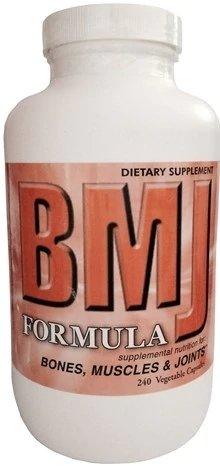No products in the cart.

A simple thing you can do to help prevent brain atrophy.
Posted by: Didrik Sopler
Cognitive impairment and dementia are getting more common as we age and it makes sense to do whatever we can to help prevent it. An increase rate of brain atrophy is often observed in older people who suffer from cognitive decline. Homocysteine, an amino acid, is a risk factor for...
Read more

Reduce your risk of death from inflammatory diseases.
Posted by: Didrik Sopler
The study reviewed here investigated the connection between different foods and the risk of death from diseases in which inflammation or oxidative stress was a predominant contributor (Buyken AE, et al. 2010). The participants both men and women were followed for 13 years. The results showed that women who ate foods...
Read more
Protect your DNA
Posted by: Didrik Sopler, Ph.D., L.Ac.
If we can protect our DNA we may be able to slow down aging. Slowing down the aging process appeals to most people, but the question is if it is possible with the resources we have now. The research reviewed investigated if that was possible by implementing a couple of...
Read more

Improve cardiovascular health and improve your brain function.
Posted by: Didrik Sopler
More and more research is finding that the different functions of the body are related to each other. For that reason it may not be a surprise that cardiac output is related to brain function. A recent study investigated if brain MRI variables were related to cardiac MRI assessed cardiac...
Read more

One simple thing you can do to reduce your risk for diabetes
Posted by: Didrik Sopler
The consumption of sugar-sweetened beverages has been associated with weight gain. These beverages include soft drinks, fruit drinks, iced tea, energy drinks and vitamin water. These types of drinks have also now been associated with metabolic syndrome and type 2 diabetes (Malik VS, et al. 2010). Metabolic syndrome is a...
Read more

Results after 4 weeks on a fast-food, high calorie diet.
Posted by: Didrik Sopler
The study reviewed here investigated the effects on insulin signaling in humans after consuming a fast-food, high calorie diet for 4 weeks that led to weight gain (Danielsson A., et al. 2009). After we eat, insulin transports the glucose from the blood into the cells where it can be used...
Read more

How to eat before competition and exercise
Posted by: Didrik Sopler
Research has documented that low glycemic index carbohydrates ingested before endurance running or biking improves performance when compared to high glycemic index carbohydrates (Wu CL, Williams C. 2006, Moore LJ, et al. 2010). The research conducted by Wu C.L. and Williams C. compared a low glycemic index meal GI value 37...
Read more

Optimal nutrition during prolonged exercise
Posted by: Didrik Sopler
Prolonged exercise is considered more than 60 minutes of activity. If you exercise for more than 60 minutes or participate in an endurance race lasting more than 60 minutes, you will benefit from drinking a carbohydrate/electrolyte solution during the exercise. It is generally accepted that 600 to 1200 ml per...
Read more

Interesting relationship between HDL-cholesterol and cancer risk
Posted by: Didrik Sopler
HDL-cholesterol (high density lipoprotein) the so called good cholesterol has for a long time been used as one of the risk factors for cardiovascular disease. High HDL is considered to be good and reduce cardiovascular risk. A recent study investigated the relationship between HDL and cancer in large randomized controlled...
Read more

Low grade inflammation documented to affect executive function.
Posted by: Didrik Sopler
A common way of assessing low grade systemic inflammation is to test the level of highly sensitive C-reactive protein (hs-CRP), an inflammatory marker. Hs-CRP is usually used as a risk factor for cardiovascular disease. Hs-CRP also seems to be associated with an increased risk for dementia. The researchers who conducted...
Read more

Green tea extract lowers cardiovascular risk factors in 3 weeks.
Posted by: Didrik Sopler
Many benefits have been associated with the use of green tea. The study reviewed here examined the effect of a green tea extract on cardiovascular risk factors (Nantz MP, et al. 2009). A standardized green tea extract was used to eliminate the variables of both the quality...
Read more

Simple way to avoid the immediate negative effect from a high fat meal on blood vessel function
Posted by: Didrik Sopler
Most people believe that high fat meals are not healthy. What is not that well known are the immediate effects of a high fat meal on the function of blood vessels. The study reviewed is very interesting because it investigated the acute impairments of a high fat meal on endothelial...
Read more

Two easy ways to help reduce the risk for diabetes
Posted by: Didrik Sopler
A lot of people know that a low glycemic index diet and exercise is important when it comes to reducing the risk for type 2 diabetes. The research reviewed here documented two other factors also affecting the risk of diabetes that most people are probably not aware of. One of...
Read more

Amazing new benefit documented from taking glucosamine.
Posted by: Didrik Sopler
Numerous studies have documented the benefits of glucosamine sulfate when it comes to supporting the cartilage and decreasing pain from osteoarthritis. Researchers at the University of Washington recently evaluated if glucosamine and chondroitin as well as a number of other supplements were associated with total mortality (Pocobelli G, et al....
Read more

The impact of processed meat on your health
Posted by: Didrik Sopler
The research reviewed here included several studies with specific inclusion criteria and a total of 1,218,380 individuals (Micha R, et al. 2010). This was a very large study and not only did it include processed meat, but also the relationship of red unprocessed meat and total meat consumption with the...
Read more

Low vitamin D level risk factor for depression
Posted by: Didrik Sopler
More and more evidence is accumulating, documenting the importance of sufficient vitamin D. The research reviewed here evaluated vitamin D levels in men and women aged 65 years and older as it related to depression (Milaneschi Y, et al. 2010). Depressive symptoms were assessed at the start of the study...
Read more

Resveratrol increases brain blood flow during task performance.
Posted by: Didrik Sopler
Resveratrol is known to have antioxidant properties and promote vasodilation (opening of blood vessels) thereby improving circulation. The study referred to here was designed to evaluate blood flow to the brain since that is an important aspect of brain function (Kennedy DO, et al. 2010). The study participants were...
Read more

Green tea increases the burning of fat for energy.
Posted by: Didrik Sopler
A lot of research is now documenting a variety of health benefits from drinking green tea or taking a capsule of green tea extract. The research reviewed here investigated the effect of epigallocatechin-3-gallate (EGCG), the major active ingredient in green tea, on fat oxidation in obese men (Thielecke F, et...
Read more

Reduce cardiovascular disease by reducing one type of fat and increasing other fats.
Posted by: Didrik Sopler
It may look strange to you that eating more fat may decrease cardiovascular disease, but decreasing saturated fat and increasing polyunsaturated fat (PUFA) can provide health benefits. Polyunsaturated fats are found in vegetables, nuts, seeds and avocados, which are mostly omega 6 fats. PUFA from flax seeds and cold water...
Read more

The role of vitamin D and accumulation of muscle fat
Posted by: Didrik Sopler
Vitamin D is important for many reasons and deficiencies are also very common. The study reviewed here is interesting, since it examined the relationship between serum 25-hydroxyvitamin D (25OHD) and fat infiltration in muscle (Gilsanz V, et al. 2000). 25OHD is the most common way of testing to determining vitamin...
Read more






